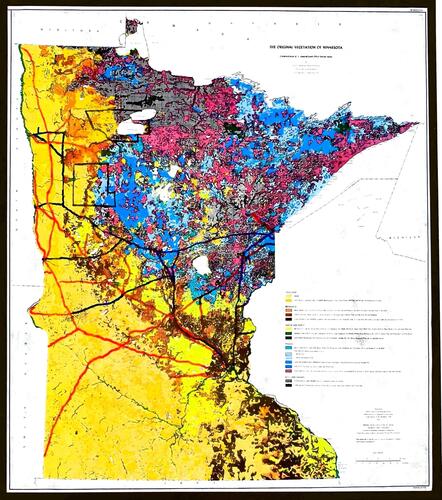
Despite the disruption of the COVID-19 shutdown in March, the class of 2020 completed a wide range of original research projects using Yale Library collections and resources. Seven students wrote senior essays that were recognized with one of three annual library prizes. The winning essays have been published on Eli Scholar.
The Harvey M. Applebaum ’59 Award is for an essay using the library’s collections of government documents and information. This year, a first prize of $500 and a second prize of $250 were awarded. The Applebaum Award is chaired by Kenya Flash, government information librarian. The 2020 submissions were judged by Barbara Esty, data librarian; Cate Kellett, catalog librarian; Scott Matheson, associate librarian for Technical Services; Youn Noh, digital information research specialist; and Jennifer Snow, librarian for anthropology, sociology, and women, gender, and sexuality studies, producing these results:
- First prize: William Horvath, Berkeley College, for The 1950s “War on Narcotics”: Harry Anslinger, The Federal Bureau of Narcotics, and Senator Price Daniel’s Probe. Jennifer Klein, professor of history, was Horvath’s senior essay adviser. Horvath, the prize judges wrote, “had an engaging essay that presented historical materials in novel ways. He used a variety of types of resources, specifically varied government information resources including hearings, legal cases, archival materials, and more.”
- Second prize: Stephanie Higginson, Morse College, for Against Executive-Controlled Administrative Law Judges. Stephen Skowronek, Pelatiah Perit Professor of Political Science, was Higginson’s senior essay adviser. The prize judges said Higginson’s work “provided novel comparisons and a new lens on the intersection of mid-century ‘teen panics’ and the promotion of increasingly severe anti-drug laws.”
The Manuscripts and Archives Diane Kaplan Memorial Prize is for an essay based substantially on research in any Yale Manuscripts and Archives collection. The $500 prize was presented to two students this year. The Kaplan Prize is chaired by Bill Landis, associate director for Public Services. Jennifer Coggins, archivist for collection development; Mike Lotstein, university archivist; Steve Ross, manager for Public Services; Judy Schiff, chief research archivist; and Camila Tessler, archivist, also served as judges for this year’s essay submissions.
- Steven Rome, Grace Hopper College, for The Apostle of Dissent: J. Hendrix McLane’s Fight Against History in Post-Reconstruction South Carolina. David Blight, Sterling Professor of History, of African American Studies, and of American Studies, was Rome’s senior essay adviser. “Steven Rome’s essay is especially noteworthy in its creative use of a small, serendipitously assembled personal papers collection as a springboard to explore political developments in South Carolina in the immediate aftermath of Reconstruction,” Landis wrote. “Drawing on a variety of sources, Rome examines the ultimately futile attempts of John Augustus Hendrix McLane to forge a progressive, purportedly race-blind alliance between farmers and other working-class South Carolinians to counterbalance the power of lawyers, bankers, and red-shirt politicians in that state as Jim Crow-era racism solidified.”
- Sahaj Sankaran, Silliman College, for Ambassadors Extraordinary: Chester Bowles, B.K. Nehru, and Ambassadorial Agency in Indo-American Relations, 1961-1969. David Engerman, Leitner International Interdisciplinary Professor of History, was Sankaran’s senior essay adviser. “Sahaj Sankaran’s essay is a beautifully written, structured, and argued exploration of the agency exercised through the contemporary ambassadorships of Chester Bowles and Braj Kumar Nehru in the tumultuous decade of the 1960s,” Landis said. “Sankaran makes creative use of an array of documentation in MSSA’s Bowles Papers and the Nehru papers held in the Nehru Memorial Library in New Delhi, India, and from several other archives, to weave a convincing thesis about these ambassadors’ actions and influence during a unique moment in the Cold War relationship between India and the United States.”
The Library Map Prize recognizes the best use of maps in a senior essay or equivalent project. This year, a first prize of $500 and an honorable mention of $250 will be awarded. The Map Prize is chaired by GIS Librarian Miriam Olivares. This year’s judges are Anna Arays, librarian for Slavic and East European studies; Brandon Milliate, librarian for South and Southeast Asian studies; Catherine DeRose, manager of the library’s Digital Humanities Lab; Kayleigh Bohemier, librarian for science research support; Kelly Blanchat, librarian for undergraduate teaching and outreach; Lori Bronars, life sciences librarian; and Rachel Sperling, librarian for environmental studies.
- First prize Heidi Katter, Silliman College, for Railroad Ties: Tracks to the White Earth and Red Lake Ojibwe Reservations, 1860s-1910s. Ned Blackhawk, professor of history and of American studies, was Katter’s essay adviser. The prize judges said Katter’s essay was a “clear and compelling project that uses a variety of archival maps to construct and advance an argument on railroad colonialism, ‘federal geographic consciousness,’ and the dispossession of White Earth and Red Lake lands.”
- First prize Soledad O. Tejada, Davenport College, for The Public and the Personal: Mapping the NYC Subway System as an Urban Memoryscape. The faculty adviser was Elihu Rubin, associate professor of architecture and of American studies. “This was an ambitious, innovative, and theoretically grounded project that used a variety of cartographic and artistic sources in the paper, which strengthened its points about cartography and mapping memory,” the prize judges wrote. “The artistic component successfully and creatively combined the physicality of place with the transient and elusive nature of memory.”
- Honorable mention: Peter A. Luff, Jonathan Edwards College, for Social Agglomeration Forces and the City. This project had two faculty advisers, Costas Arkolakis, professor of economics and Sun Kyoung Lee, postdoctoral associate in economics. “The author used a rigorous methodology, and thoroughly described the process to generate and geocode data from historic NYC archives,” the judges wrote. “Merit is given to the use of GIS-based maps, including 3D visualization, to demonstrate the veracity of the argument while providing an intriguing glimpse into New York City’s Gilded Age.”
Image: Marschner Map of Original Vegetation, cited by Heidi Katter '20 in her essay "Railroad Ties"